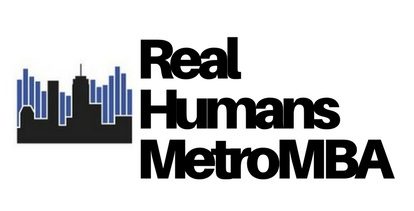Columbia Business School Professor On Keeping Your New Year’s Resolutions

Every year, half of all Americans make New Years resolutions. Unfortunately, according to the latest Marist Poll, one-third will fail. So, how do you make sure you succeed? Columbia Business School professor of business Gita Johar has advice for holding fast to your goals. Her trick: “Make it painful to break your resolution.”
How to Make Breaking a New Year’s Resolution Painful
The idea is to impose penalties on yourself for failing to keep your resolution. This can make it far more likely that you’ll follow through. By associating a negative outcome with failure, you’ll resist temptations to quit. “Self-punishment leads to heightened goal accessibility,” Johar believes.
And the idea of adding self-imposing penalties and restrictions is not new. Its origin goes back to ancient Greece and the Odyssey when Odysseus tied himself to his ship’s mast to resist the call of the Sirens. For modern times, the concept can be applied to using a smartphone app to reduce screen time or using an alcoholism drug to stop alcohol abuse.
“Enduring pain, in other words, is not just a nudge to do better in the future but also an inward sign of self-control,” Johar’s research explained. “You feel you have more self-control if you’re able to withstand pain.”
Proof Is in the Pudding
To prove her concept of using pain to succeed, Johar and her colleagues conducted a “painful” experiment that tested students’ willingness to drink bitter juice and listen to unpleasant noise.
In one experiment, 205 undergraduate students were tasked with thinking about a time they had too little self-control and overspent. They were then asked to read either an article about how negative sensory experiences were an indicator of self-control or how negative experiences had no indication of self-control. All students were then asked to drink bitter juice.
The students who read that self-control and negative experiences go together drank more bitter juice than others—they punished themselves for their failure with money. “Upon recalling a self-control failure that one feels responsible for, individuals who believe their personal qualities can change are more likely to endure negative experiences,” explained Johar.
The takeaway is that if you want to reach your 2019 New Years resolutions, you need to aim high and back up your goals with firm self-punishments when you fail. Read more about this idea on the Columbia Business School news site.
This article has been edited and republished from its original source, Clear Admit.
Real Humans of the York University Schulich School of Business

A half century after the opening of the York University Faculty of Administrative Studies (FAS), the York Schulich School of Business in Toronto continues to shape the Canadian MBA landscape.
The business school, which was officially renamed in 1995 after a receiving sizable donation from esteemed Montreal philanthropist and entrepreneur Seymour Schulich, has earned a substantial track record of firsts in Canada, including: the country’s first MBA Arts & Media Administration specialization; MBA/LLB; Nonprofit Management and Leadership Program; International MBA; Financial Services Program; Financial Engineering specialization; and the first multi-national EMBA program with the Northwestern University Kellogg School of Management.

Of course, the history of a school may paint an overall setting, but it hardly tells the story of a current, individual student in the program. York Schulich MBAs stand out among many of Toronto’s stellar business schools, typically enrolling with a GMAT score of 660 and five years of professional work experience. As well, the York Schulich international community is well-represented, at 32 percent of the overall MBA class.
According to recent employment statistics provided by the school, Schulich MBAs typically earn about $91,500 CAD per year after earning their degree. In addition, about 89 percent of graduates earn employment just three months after graduating. Most grads earn roles in finance (23 percent), with marketing/sales (20 percent) and operations (18 percent) following closely.
To get a better feel for what life is really like for current York Schulich MBAs, we talked to a handful of students, including the manager of a long-standing luxury jewelry store, a theater major and performer, and a commercial lawyer looking for a brand new career challenge. Read on to see their stories and what the future may hold for life after an MBA.
Robinson Welcomes Record Number of New Graduate Students

This year, the Georgia State University—J. Mack Robinson College of Business is celebrating a record number of new graduate students, with a 22 percent increase since fall 2015.
Guide to Getting the Most from Your MBA Campus Visit

So you’ve decided that you want to go to graduate school to pursue your MBA — congratulations, that’s great news! But how will you know which MBA program is right for you? Sure, you can read all the rankings, reviews, and recommendations to get a good idea of what a particular school, campus or program can offer you, but the most tried and true way to know for certain is to plan an on-campus visit. Continue reading…

